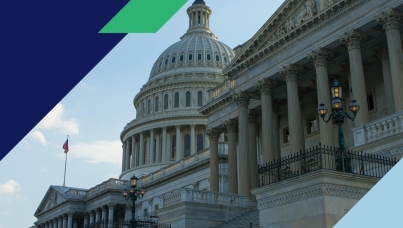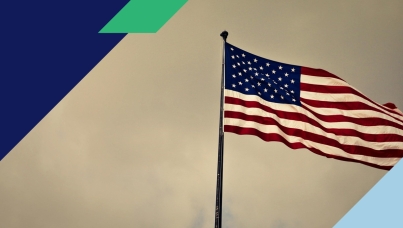COVID-19 and the Cracks in Trump’s Armor

Until just a few weeks ago, the coronavirus seemed like a distant, almost abstract possibility. Now it is here, with federal and local governments going into hyperdrive in an attempt to contain it. It is a transformative moment both from a public health and political perspective.
Governments—whether federal, state and local —are under a microscope. Every action they take is being scrutinized. This moment will be a crucible for the Trump administration, which for now has sailed along under the auspices of a booming economy and few domestic disasters.
This scrutiny is par for the course. Citizens expect governments to be stabilizing forces in times of crisis. For context, we can refer back to the Hobbesian theory of “war against all.” According to Hobbes, we – the citizens – give up some of our freedoms to the government in return for greater certainty and stability. Most importantly, governments are expected to hold anarchy at bay.
So, what do Americans think about the government’s efforts to contain the coronavirus? And how do they see Trump’s leadership in these challenging times?
Trump’s approval ratings
The coronavirus hasn’t made much of an impact on Trump’s approval ratings. This is the most important indicator of public perceptions of Trump. For the past year, it has been sitting at about 40%. The coronavirus hasn’t made a difference yet.
As I’ve written elsewhere, high approval ratings are a sign that the sitting president has broad public support and a good chance of winning the next election. For Trump, that 40% approval rating puts him in a solid position. But he’s not untouchable. Even a 5- or 7-point change could make a huge different in the ultimate outcome of the 2020 election.
So while there hasn’t been a “coronavirus effect” on Trump’s approval ratings, let’s see what happens as more Americans wake up to the reality of the coronavirus.
Economic confidence amid turbulence in the stock markets
Though Trump’s approval ratings haven’t changed, U.S. consumer confidence has dipped, per our most recent available consolidated economic indicator tracking data. Though Americans didn’t register any concern from January to February as the virus took hold in China, we saw a 2.8 point drop in confidence from February to March in the United States.
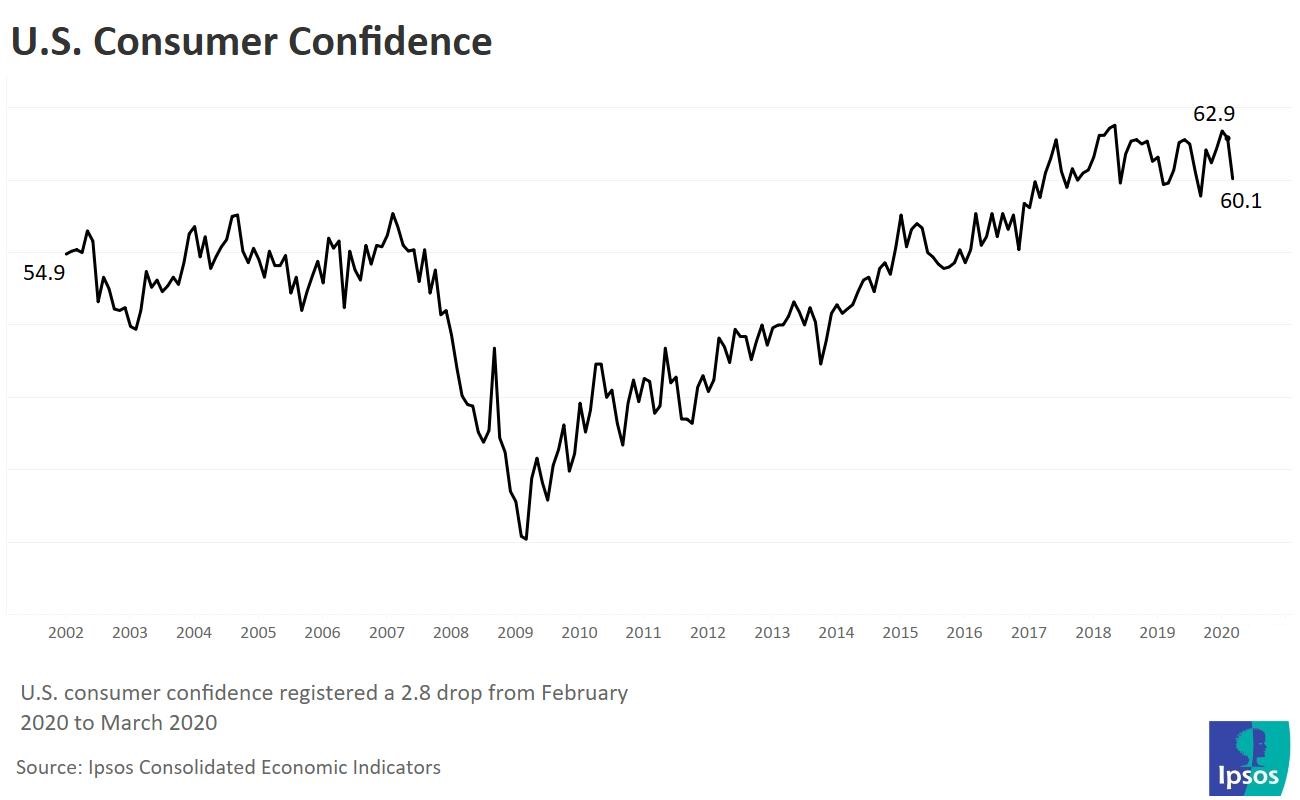
Any change in economic confidence is significant because Trump has been resting the case for the success of his presidency in large part on the robust economy. Looking ahead to the general election, a sitting president with solid approval ratings and a booming economy has a much better chance of being reelected than one presiding over a troubled economy.
In short, any change to the United States’ economic prospects could weaken Trump’s reelection chances and diminish his approval rating.
Public health measures
How the Trump administration reacts to the coronavirus will be another important litmus test, particularly around the steps it takes to contain the virus.
First and foremost, Americans want the government to make the COVID-19 test widely available.
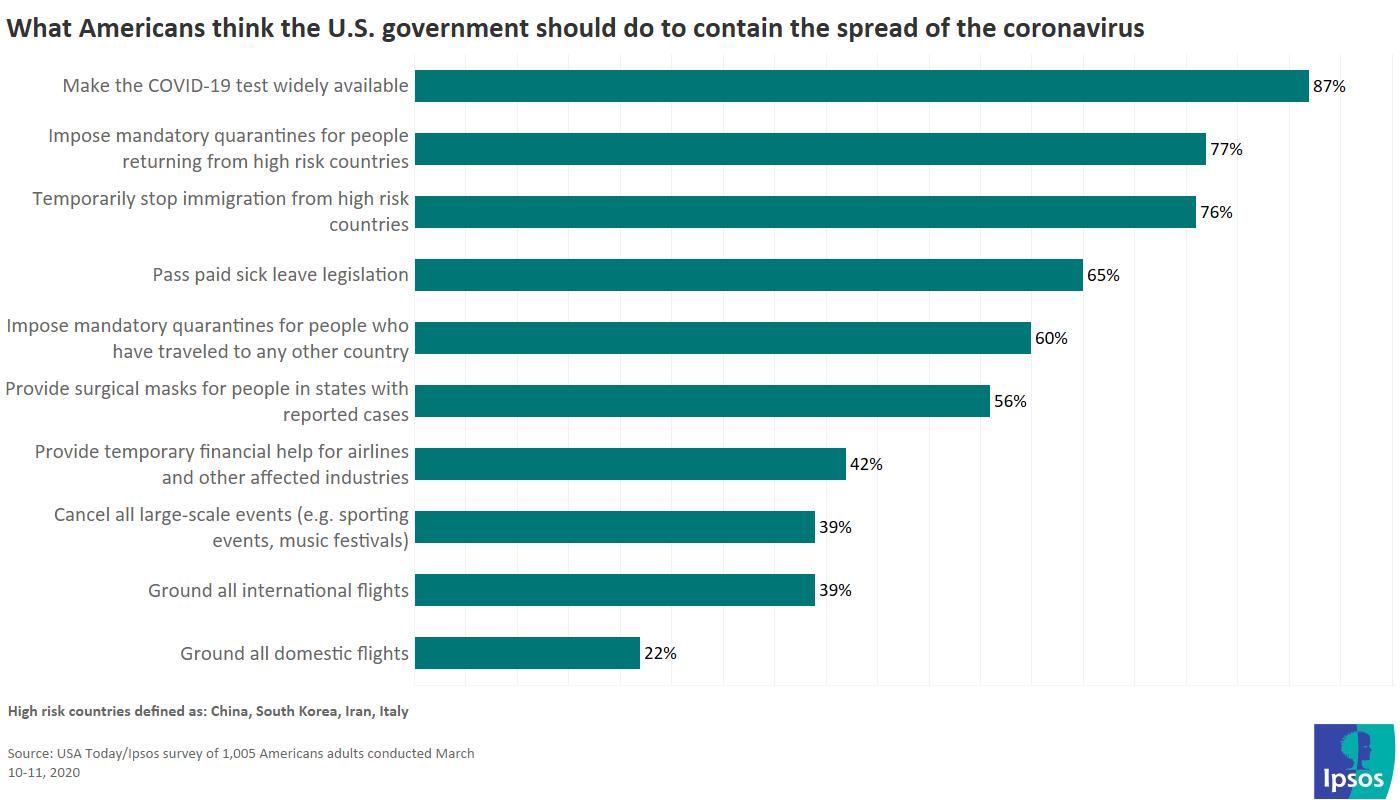
Experts believe that the actual infection rate in the United States may be significantly under-reported. In the early phase of the crisis, there was a nation-wide delay in administering and shortage of COVID-19 tests, which allowed the virus to spread undetected. The government is now moving to rapidly increase the numbers of tests available and increase screenings across the country.
How that lack of early action ultimately plays out could be an Achilles heel for Trump in terms of perceptions of his administration’s ability to handle a crisis. Ultimately, how testing and containment efforts play out over the next week could be a turning point for his administration.
A lack of trust in the president during this crisis is evident.
Our latest polling with USA Today shows that most Americans don’t see Trump or Vice President Pence, who he charged with leading the task force on the coronavirus, as the most credible sources of information about the virus.
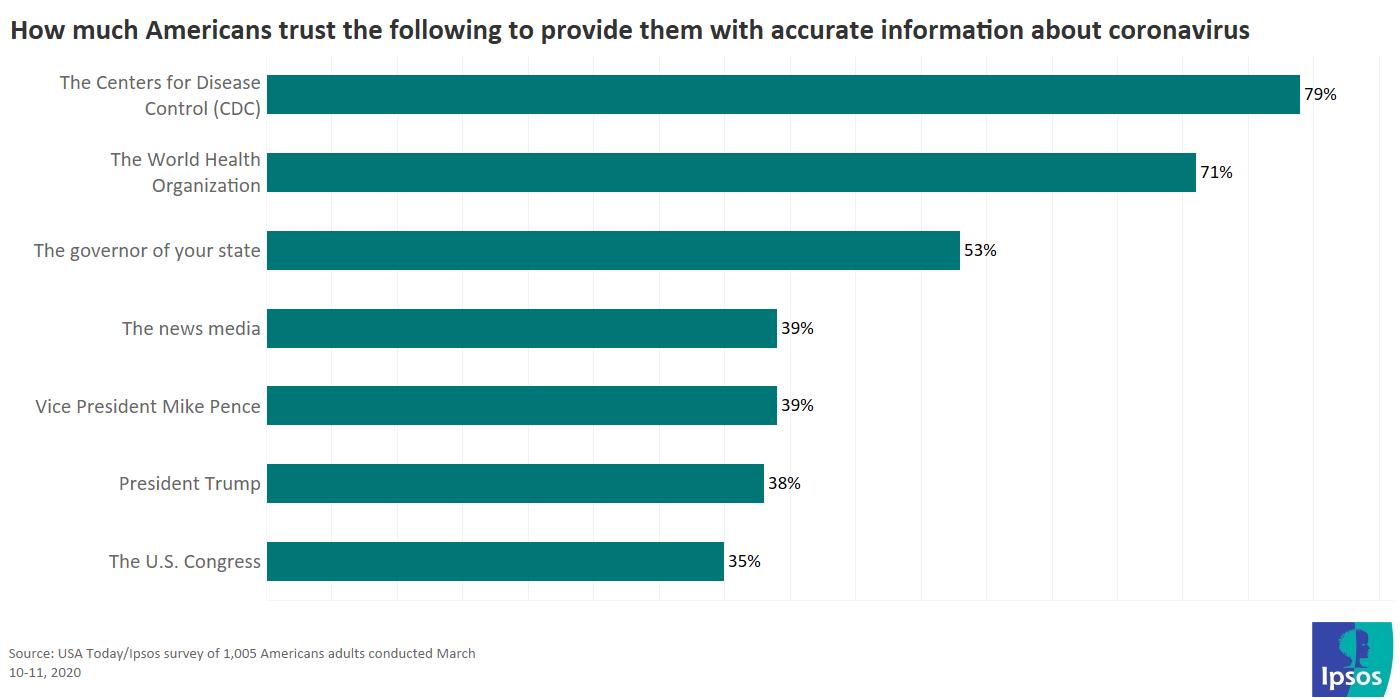
That said, these numbers are highly polarized. Republicans are much more likely to have faith in Trump and his vice president than Democrats, but this divergence could attenuate if the situation worsens.
Final Thoughts
There’s a lot we still don’t know about how the virus will play out. But given the predicted disruption to our daily lives in the coming weeks, the virus has already gone from being an abstraction to a reality for most Americans.
The same seems to go for the Trump administration. After weeks of assurances from Trump to the American public not to worry, he has since shifted his messaging. Just today he declared a national emergency on the coronavirus, calling attention to the problem and marshaling resources of the federal government and private sector.
How the Trump administration measures up to the challenge will ultimately determine his reelection chances. There is still a long road ahead but cracks are starting to show in Trump’s armor.
For more information, please contact:
Clifford Young
President, U.S.
Public Affairs
+1 202 420-2016
[email protected]
For more information on COVID-19 please click here
About Ipsos
Ipsos is now the third largest market research company in the world, present in 90 markets and employing more than 18,000 people.
Our research professionals, analysts and scientists have built unique multi-specialist capabilities that provide powerful insights into the actions, opinions and motivations of citizens, consumers, patients, customers or employees. Our 75 business solutions are based on primary data coming from our surveys, social media monitoring, and qualitative or observational techniques.
“Game Changers” — our tagline — summarizes our ambition to help our 5,000 clients to navigate more easily our deeply changing world.
Founded in France in 1975, Ipsos is listed on the Euronext Paris since July 1st, 1999. The company is part of the SBF 120 and the Mid-60 index and is eligible for the Deferred Settlement Service (SRD).
ISIN code FR0000073298, Reuters ISOS.PA, Bloomberg IPS:FP


